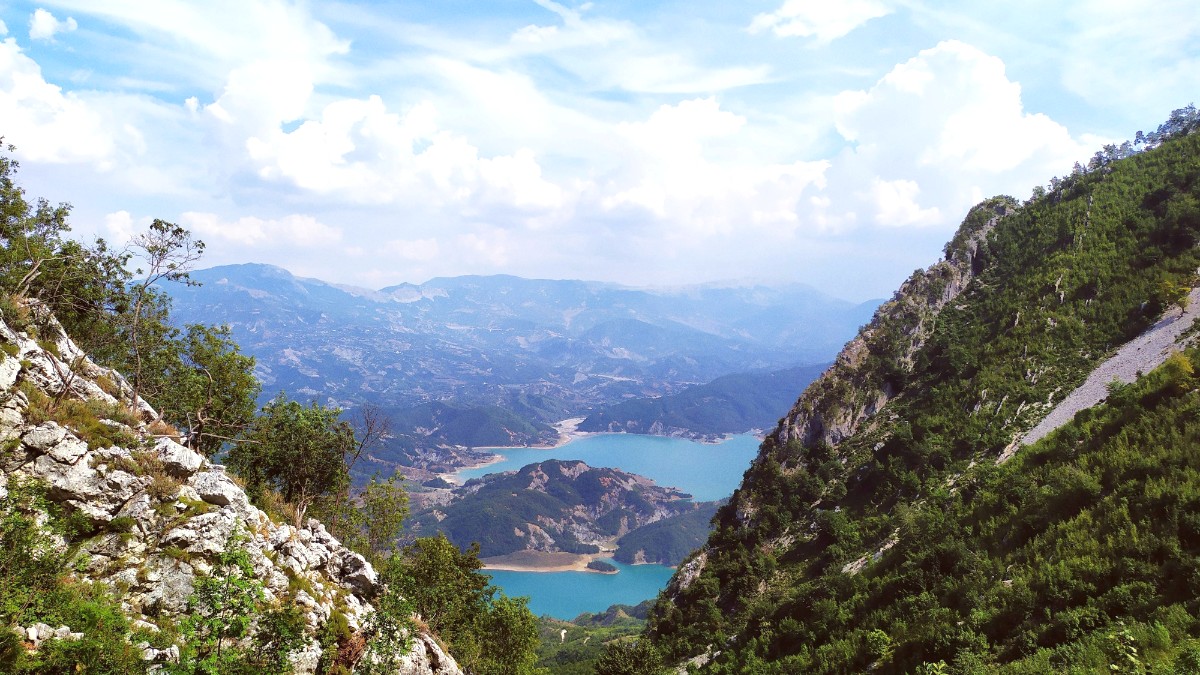
Albania
Albania has ongoing efforts to protect its coastal ecosystems and biodiversity. This includes marine protected areas, preserving marine life and habitats. Support these by respecting regulations and avoiding harm to fragile ecosystems.
Waste management steadily improves, though litter remains visible in some areas. Always use designated bins. Minimize waste by carrying a reusable water bottle, using a reusable shopping bag, and choosing products with minimal packaging.
Albania generally has sufficient water resources, but responsible water use is always encouraged. Practice water conservation in your accommodation: take shorter showers and turn off taps when not actively using water. Report any leaks to hotel staff.
Thoughtful engagement with Durres's culture deepens your experience and builds positive local connections.
Support local initiatives that preserve historical sites and cultural traditions. Visiting museums (like the Archaeological Museum and Ethnographic Museum), engaging with local artisans, and participating in authentic cultural experiences (like local festivals) directly contribute to these efforts.
Be polite, open-minded, and patient. Albanians are generally welcoming. Making an effort to learn a few basic Albanian phrases (greetings, "thank you") garners appreciation and leads to warmer interactions. Be aware of personal space, which can sometimes be closer than you might be used to.
Always ask for permission before taking close-up photographs of individuals, especially children. Not everyone appreciates being photographed, and respecting privacy is paramount. A simple gesture and "Më falni" (excuse me) go a long way. Be discreet and respectful when photographing in religious settings; some places may have specific rules or it may be inappropriate during prayer times.
When visiting churches or mosques, dress modestly, covering shoulders and knees. Women should carry a scarf to cover their heads when entering a mosque. Remove shoes before entering mosques. Maintain a quiet, respectful demeanor inside religious buildings, especially if services are underway. Avoid loud conversations or disruptive behavior.
Look for hotels and tour operators committed to sustainable practices, such as energy-efficient systems, waste reduction, or sourcing local food. Visit Ecobnb for eco-friendly accommodation options.
Find Eco-StaysChoose tour operators emphasizing responsible tourism and respect for nature. Explore ethical tour options with G Adventures.
Browse Ethical ToursShowing respect for local customs, traditions, and people enriches your journey and fosters cultural exchange.
Your choices during your visit directly influence the local economy, strengthening the community.
While formal community-based tourism initiatives are less developed in Durres compared to some rural areas of Albania, direct support for local communities is possible. Stay in family-run guesthouses or small, independent hotels rather than large international chains. Participate in local experiences or tours led by local guides.
Purchase souvenirs and goods directly from local artisans at markets (like Pazari i Ri) or small independent shops. This supports their livelihoods and helps preserve traditional crafts. Be cautious of mass-produced souvenirs that might not be locally made; opt for items with a clear local origin.
Choose local restaurants and cafes over international fast-food chains. Durres presents many excellent local eateries serving authentic Albanian cuisine and fresh seafood. Shop at local markets for produce, cheese, and other items. Use local transport services (buses, local taxis, Bolt) rather than always relying on private, potentially foreign-owned, transfer services.
Opt for local restaurants and cafes for authentic Albanian flavors and fresh seafood.
Visit local markets for fresh produce, cheeses, and other regional goods.
Utilize buses and local taxis to distribute your spending throughout the community.
Avoid giving money directly to beggars, especially children, as this can inadvertently encourage begging and discourage school attendance. Avoid purchasing goods from vendors who may exploit vulnerable populations. Report concerns to local authorities or your embassy/consulate if appropriate.